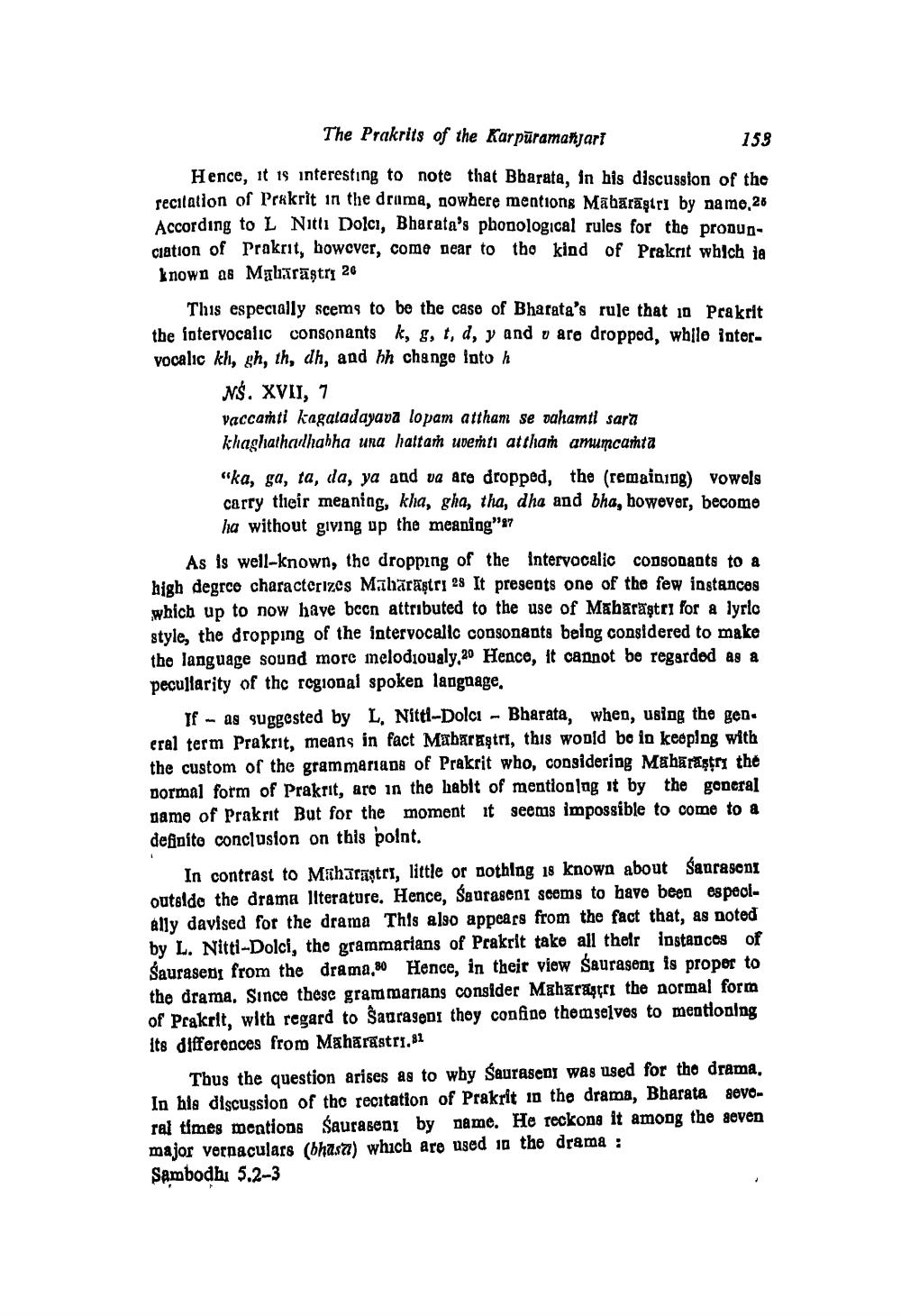________________
The Prakrits of the Karpūramaħjari
159 Hence, it is interesting to note that Bbarata, in his discussion of the recitation of Prakrit in the drama, nowhere mentiong Mabaragiri by namo,26 According to L Nitti Dolci, Bharata's phonological rules for the pronunciation of Prakrit, however, come near to the kind of Prakrit which ia known as Maharastrı 26
This especially scems to be the case of Bharata's rule that in Prakrit the intervocalic consonants k, s, t, d, y and u are dropped, while intervocalic kh, gh, th, dh, and hh change into h
N$. XVII, 7 vaccanti kagaladayava lopam atthan se vahamti sara khaghathaulhabha una hattam uvemti attham amumcanta “ka, ga, ta, da, ya and va are dropped, the (remaining) Vowels carry their meaning, kha, gha, tha, dha and bha, however, become
ha without giving up the meaning"27 As is well-known, the dropping of the Intervocalic consonants to a high degrco characterizes Miharaştri 28 It presents one of the few instances which up to now have been attributed to the use of Maharaştri for a lyric style, the dropping of the intervocalic consonants being considered to make the language sound more melodioualy,20 Hence, it cannot be regarded as a peculiarity of the regional spoken language,
If - as suggested by L. Nitti-Dolcı - Bharata, when, using the gen. eral term Prakrit, means in fact Mabaraştri, this would be in keeping with the custom of the grammariana of Prakrit who, considering Maharaştri the normal form of Prakrit, are in the habit of mentionlng it by the goneral name of Prakrit But for the moment it seems impossible to come to a definito conclusion on this point.
In contrast to Maharaştri, little or nothing 18 known about Sanraseni outside the drama Ilterature. Hence, Saurasent scems to have been especially davised for the drama This also appears from the fact that, as noted by L. Nitti-Dolci, the grammarians of Prakrit take all their instances of Saurasent from the drama.80 Hence, in their view Saurasen; is proper to the drama. Since these grammarians consider Maharaştri the normal form of Prakrit, with regard to Ŝauragedi thoy confine themselves to mentioning its differences from Maharastri.82
Thus the question arises as to why Saurasen was used for the drama, In his discussion of the recitation of Prakrit in the drama, Bharata several times mentions Saurabeni by name. He reckons it among the seven major vernaculars (bhasa) which are used in the drama : Sambodhı 5.2-3




